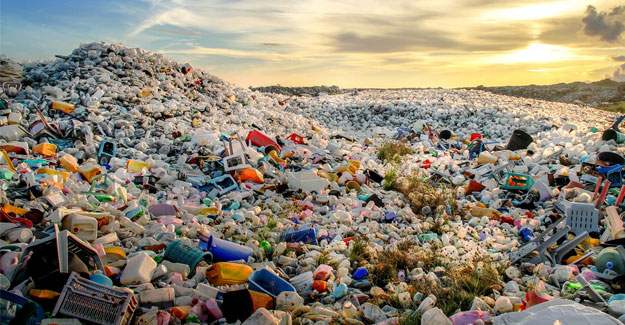
Changing The Path Forward For Plastic
Every year, 8 million tons of plastic waste — most not biodegradable — finds its way into the ocean. And only 9% of all plastic waste ever produced has been recycled. The world's oceans will have more plastic than fish by 2050 unless people stop using single-use plastic items such as plastic bags and plastic bottles, according to figures cited by the United Nations. Over decades, these plastics fragment into microplastics that harm wildlife and seep into the food chain, contributing to a cascade of environmental, financial and health problems. In response to the crisis, consumers and government regulators are putting pressure on companies to change the way they do business. Consumers want brands to use sustainable materials and some are willing to pay a premium for them. Governments are penalising companies with fines or taxes if they don’t meet minimum sustainability targets. This change in attitudes and policy is transforming the way companies think about and treat plastic products and packaging. Consumer products giants such as Coca-Cola, Nestle and Colgate-Palmolive are exerting pressure on recyclers to up their game. Those three have been joined by hundreds of other multinationals, including the Gap, Walmart and IKEA, which have committed to manufacturing products and packaging to enable a plastics circular economy. Adidas, for example, has pledged to shift to use 100% recycled polyester in all its products by 2024. With many other companies also setting sustainability goals, the world needs a lot more post-consumer plastic than is available. It is difficult to project future growth of the global recycled plastics market, especially given that compared to megaprojects in virgin plastics, the relatively smaller investments in recycled plastics capacity are faster to implement and may also fly under the radar. What is clear is that demand far exceeds the estimated supply based on compound annual growth rate (CAGR) projections for the next five years. For instance, the global CAGR of the recycled polyethylene terephthalate (rPET) market is expected to range from 6-8%, meaning that the market would increase from the current US$ 9 billion to a US$ 12-14 billion market in 2026. A report this spring from the Recycling Partnership, a National non-profit group, calls for a US$ 17 billion investment over five years in the US residential recycling system to increase the recycling rate to nearly 70%. The current rate is about 32%. The group says collaborative government and corporate investment could generate more than US$ 30 billion in economic benefits and nearly 200,000 new jobs within 10 years. "Now is the time to take action," Recycling Partnership CEO Keefe Harrison said in her group’s report. "Corporations, federal, state and local politicians are at the table and ready to deliver tangible change." Revamping the world's recycling infrastructure is no small matter. In the United States, thousands of municipalities collect paper, plastic, metal and glass in a "single stream." Everything gets dumped into the same blue bin. Some plastics are augmented with dyes or fire retardants, some are polyethylene terephthalate (PET), while others are high-density polyethylene (HDPE), polypropylene or other types of plastic. All need to be sorted and processed independently. In less developed countries, informal armies of trash pickers scour landfills for recyclables, and sorting and processing are almost nonexistent. In the past dozen years, the plastics industry has been urged to rethink the material’s entire lifecycle by developing manufacturing processes that use fewer natural resources and emit less harmful gases; by redesigning products to improve the economics and uptake of recycling, eliminate avoidable plastic and expand consumer-reuse options; and by developing and scaling up new recycling technologies. In addition, some manufacturers are working on developing alternative plastics that are both bio-based and compostable. Upstream and downstream solutions are emerging out of necessity, modifying plastic production processes and reimagining how products are used, reused and recycled. At the same time, consumers are shifting their attitudes and adopting innovations that are kinder to the environment. The International Finance Corporation (IFC) has also made sustainability a top priority, supporting companies in emerging economies to grow in a way that is respectful of workers and the environment. In 2020, IFC extended a US$ 300 million loan to Indorama Ventures Public Company Limited, a leading global manufacturer of virgin PET, to expand recycling capacity in Asia and Latin America. By 2025, Indorama expects to produce a minimum of 750,000 metric tons of recycled PET. IFC is supporting Austria’s Lenzing and Brazil’s Duratex to build up the wood-based textile fibres value chain, providing a US$ 500 million package to help finance construction of a greenfield dissolving wood pulp plant in Brazil. Unlike synthetic fibres, wood-based textile fibres do not shed microplastics into the water when washed and lend themselves more easily to downcycling. With support from IFC and the private sector, the industry is investing in novel technologies that can shrink plastic’s environmental footprint, revolutionise the way companies think about plastic products and packaging and provide broad economic benefits while meeting the growing demand for plastic.
Textile Excellence
If you wish to Subscribe to Textile Excellence Print Edition, kindly fill in the below form and we shall get back to you with details.












